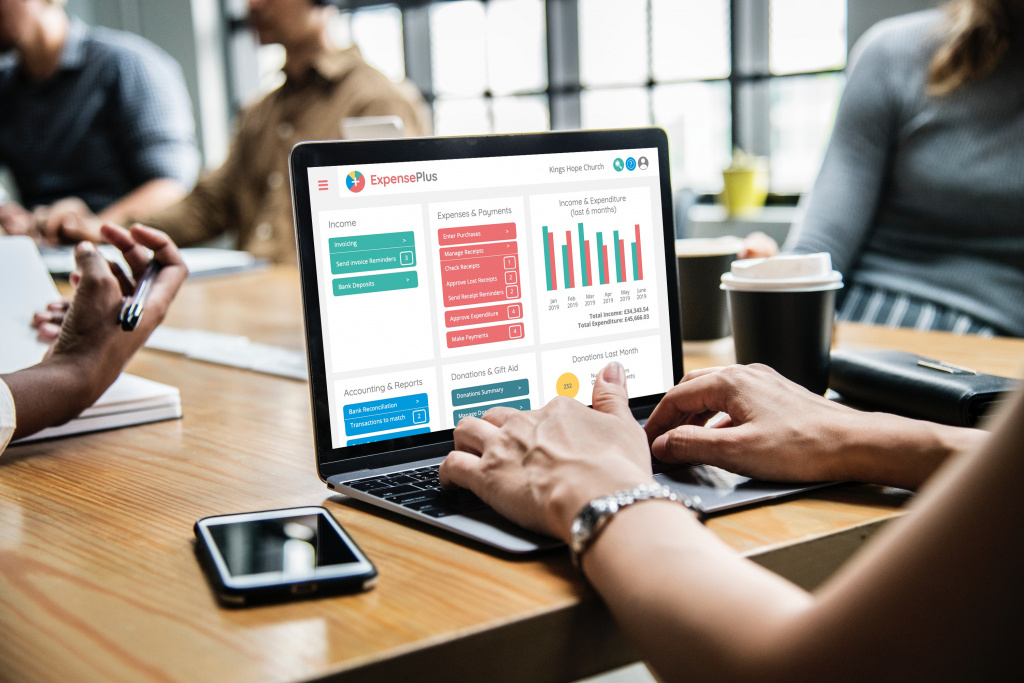When employing staff and managing payroll in charities you need to consider the processes to pay employees. You also need the correct policies and procedures to comply with employment law and to help your employees flourish.
This blog provides some practical advice to help you get started with charity employment and payroll. You will still need proper expertise and guidance on top of this!
Expertise among charity trustees
Within your trustee team, it’s helpful to have trustees who have expertise and experience in different areas. Trustees should take responsibility for different aspects of governance and ensure good practice within your organisation. Areas might include finance, health and safety, and human resources (HR).
We recommend that one of the trustees takes responsibility for HR. You’ll need this even if you choose to outsource some of the HR tasks to a 3rd party. HR is an area which needs proper management with good processes and policies. This will help you avoid complex and challenging problems for your church and charity.
Getting Started with Employment for your Charity
If you are employing staff for the first time, HMRC provides a brilliant ‘7 things to do’. It covers: Pay, Right to Work, DBS, Insurance, Employment Contracts, Registering as an employer, and Pensions Auto-enrolment.
Reading and understanding these requirements and implementing the related actions is a MUST before your charity employs someone.
However, the above list provided by HMRC covers just the basics. We highly recommend you also consider the following:
- Employee Job Descriptions – these will provide clarity for both your team and for potential employees about what the role is and what qualities and experience they need.
- Documented Recruitment process – this will provide clarity when you evaluate applicants. It will help to avoid discrimination and to recruit the best person for the role.
- Employee Induction – a well-planned employee induction that includes training, meeting the team etc., will help new employees feel welcome.
- Training Needs – what training do your employees need in order to do their roles well? This might be First Aid or health & safety training, or training on line management or managing volunteers. It might be one-off or ongoing training. It could be a course or your employee might spend a day at another church or charity to learn from someone who does a similar role.
- Policies – you will need a disciplinary policy and a grievance policy as your employment contracts will reference these. You are likely to also need other policies: a purchasing policy, an expenses policy, a confidentiality policy, a data protection policy, a health and safety policy, a safeguarding policy, a parental leave policy, a holiday policy, and so on. Rather than trying to write your own policies, it’s typically best to ask other churches or charities whether they will share their policies with you, or you can use ones provided by Stewardship. You can then adapt these where needed before adopting them as your own.
- Template letters – Employment issues become tricky when you don’t have a written record of conversations you have had. Template letters are useful for the common scenarios that are likely to arise when employing staff. These may include: responding to a parental leave request, writing to an employee who is absent for more than 1 week, if an employee submits a grievance, when you need to issue a written warning about someone’s conduct etc. ACAS provides some brilliant template letters.
- HR Expertise – If you don’t have anyone in your church or charity who is familiar with employment legislation then you might want to consider a subscription to ChurchWorkers.net or get training from ACAS. Employment law is complex and ever changing, so having the right expertise is crucial.
Getting Started with Payroll for Charities
When you manage payroll as a charity, you have two main options – to manage payroll yourself (in-house) or to outsource this to a 3rd party.
a) Outsourced payroll
If you employ less than 3 to 5 staff, then outsourcing is likely to be the simplest, cheapest and best option for your church or charity.
There are lots of providers that offer outsourced payroll. We highly recommend Stewardship who offer a brilliant payroll service for churches and charities.
b) In-house payroll
If you employ more staff or want to do payroll in-house, there are several payroll software packages available.
We highly recommend BrightPay. Their software is easy to use, it integrates with HMRC and most pension providers, it handles pension auto-enrolment, statutory pay and other key requirements well and it is affordable.
What does processing monthly payroll involve?
Once up and running, your charity will typically do payroll monthly and it involves the following steps:
- Salary Changes and Overtime – updating any salaries that have changed and adding in any additional overtime payments required. This step can also include adding deductions, calculating statutory pay, and adding new employees to payroll.
- Running Payroll Calculation – you’ll use the software to do this – either yourself or the 3rd party you outsource payroll to. The 3rd party will help you avoid mistakes in your calculations.
- Submitting RTI – this is an electronic submission from the payroll software to HMRC reporting what each employee has been paid. You need to send additional submissions to claim employers’ NI Allowance (currently £5k per year) and for any staff receiving statutory pay. Again, these submissions are typically automated. However, they are very important, otherwise your church or charity may end up several thousand pounds out of pocket. Again, this is where a 3rd party payroll processor, like Stewardship, will ensure you don’t miss this.
- Pensions Submission – this is typically an electronic submission from the payroll software to your pension provider. Some pension providers take the employee and employer pension contributions automatically from the submission. Others require you to log in to your online employer pension portal to authorise the payment. Typically, the 3rd party payroll provider handles this if you outsource payroll.
- Paying Employees – if you are processing payroll in-house, your payroll software will provide you with a file you can use to set up payments on your online banking. Typically, you need to do this manually as most banks don’t allow you to upload the payroll data file directly. Some payroll software packages provide an option to submit payments directly to your bank. But beware – they usually add a % fee to the amount. So, for most churches and charities this option isn’t a cost-effective solution. If you outsource payroll to a 3rd party, then they will either send you a spreadsheet of payments that you need to make (less preferable) OR they will take a direct debit payment from your account (like Stewardship does) and then make salary payments on your behalf (which is the simpler option).
- Employee Payslips – if you process payroll in-house then your payroll software will provide an option to send payslips (as well as P45s and P60s) at the click of a button. Some payroll software allows you to provide your employees access to view and download pay slips themselves. However, this is typically at an additional cost per employee per month, and often employees don’t make sufficient use of this to warrant the extra cost. If you outsource your payroll to a 3rd party, they will typically send payslips on your behalf.
Your Charity’s Payroll in ExpensePlus
If you are using ExpensePlus to manage your church or charity finances, you can use the Payroll Upload Module to:
- upload and view payroll data;
- create and view payroll payments.
Uploading payroll data is simple. Once uploaded, you can generate payroll payments at the click of a button. These are then processed via the same brilliant approvals and payments process flow within ExpensePlus alongside other expenses and payments.
There is no need to enter payroll journal transactions. Simply upload your payroll data and specify any salary splits, and ExpensePlus will do the rest for you.

ExpensePlus is a cloud-based fund accounting software package designed for churches and charities. ExpensePlus makes managing fund accounts simple and straightforward. It’s used by hundreds of charities and churches across the UK and is rated 4.8 stars (out of 5) on Google with over 900 user reviews.







